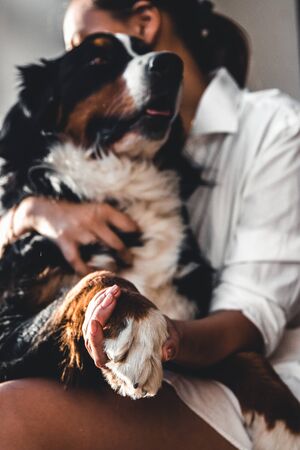Introduction to the Dangerous Wild Animals Act
If you’ve ever fancied keeping a pet that’s a bit more exotic than your average tabby, you’ll quickly discover that the UK has some rather specific rules in place. The Dangerous Wild Animals Act is a uniquely British piece of legislation, crafted to strike a careful balance between the joys of owning unusual animals and the need to keep both people and pets safe. Introduced back in 1976, this Act was set up as a direct response to concerns about public safety and animal welfare. Imagine walking your dog on Hampstead Heath only to bump into someone strolling with a lynx on a lead! The law aims to prevent just such surprises, making sure that only those who are truly prepared can care for creatures that aren’t native—or naturally safe—in Britain. In essence, it’s about ensuring responsible ownership while protecting our communities and the magnificent animals themselves. Before you go dreaming about sharing your flat with a serval or python, it’s worth getting acquainted with what this law covers and why it remains an important part of life for exotic pet lovers across the UK.
2. Which Animals Are Covered?
If you’re dreaming of sharing your British home with a slithering python or a prowling serval, it’s wise to know which exotic pets fall under the watchful eye of the Dangerous Wild Animals Act 1976. This legislation is the Crown’s way of keeping both animal lovers and the public safe, ensuring that only responsible owners can keep certain species. The Act doesn’t just target the obvious large predators; it covers a fascinating array of creatures, some of which might surprise you!
Exotic Pets on the List
The Act specifies a wide range of animals considered dangerous, grouped largely by family or order rather than individual species. Here’s a quick glance at some of the most notable:
| Animal Group | Examples | Why Regulated? |
|---|---|---|
| Big Cats | Lions, Tigers, Leopards | Pose serious threat to humans; require specialist care |
| Primates | Chimpanzees, Capuchin Monkeys | Potential for aggression; complex needs |
| Venomous Snakes | Cobras, Vipers, Mambas | Toxic bites could be fatal; risk to public health |
| Certain Canids & Hyenas | Wolves, African Hunting Dogs | Packs can become aggressive; escape risk |
| Crocodilians | Crocodiles, Alligators | Powerful jaws; unsuitable for domestic settings |
The Crown’s Special Concerns
The UK government takes into account not only the animal’s potential danger but also its welfare. Many of these animals have very specific environmental and dietary needs—think heated enclosures for reptiles or vast spaces for big cats—that are difficult to meet in an average home or garden in Britain. By regulating these exotic pets, the Act aims to balance the thrill of keeping extraordinary animals with the safety and well-being of everyone involved.

3. Licence Requirements and Application Process
If you’re dreaming of sharing your home with an exotic pet in the UK—perhaps a boa constrictor, serval cat, or even a wallaby—you’ll need to navigate the Dangerous Wild Animals Act’s licensing system. Local councils are at the heart of this process, ensuring both animal welfare and public safety. Here’s what you should know before inviting your next wild companion on their British adventure.
What You’ll Need for Your Licence
Obtaining a licence isn’t simply about filling out a form; it’s about demonstrating that you’re a responsible owner who meets strict standards. The application process generally includes:
- Comprehensive paperwork detailing your experience and knowledge of the species
- Evidence of secure accommodation and enrichment for your animal
- Proof of suitable insurance cover
- A non-refundable fee (which varies by council)
Key Steps in the Application Process
| Step | Description |
|---|---|
| Submit Application | Complete the councils form with details about yourself, your pet, and their intended living conditions. |
| Pay Fees | Application fees range between £100-£700 depending on species and council. |
| Site Inspection | An officer (sometimes with a vet) will inspect your home for security, hygiene, and welfare standards. |
| Insurance Check | You must provide proof of public liability insurance as part of the process. |
| Decision & Issuance | If approved, you’ll receive a licence valid for up to two years—renewable upon further inspection. |
What Councils Expect from Responsible Owners
Your local council is looking for more than just enthusiasm—they want evidence that you can keep both your animal and neighbours safe. This means robust enclosures, escape-proof locks, proper veterinary care arrangements, and contingency plans for emergencies. If you’re ready to tick all these boxes, you’re one step closer to making your exotic pet dreams a reality in true British style!
4. Your Responsibilities as an Exotic Pet Keeper
Owning an exotic or wild animal in the UK is a serious undertaking governed by the Dangerous Wild Animals Act 1976. The law sets out clear expectations for all keepers, not just for the welfare of your extraordinary companion, but also to safeguard neighbours and the wider community. Let’s explore what’s expected from you as an exotic pet owner, whether your house feels like a mini jungle or you simply share your sofa with an unusual friend.
Housing Standards: Creating a Safe Haven
One of your primary responsibilities is providing suitable accommodation that meets the specific needs of your wild animal. The council will inspect your setup before issuing any licence, so it’s vital to ensure:
| Requirement | Description |
|---|---|
| Security | Enclosures must be escape-proof and robust enough to prevent accidental release. |
| Space | Your animal should have ample room to express natural behaviours comfortably. |
| Hygiene | Cages and enclosures must be kept clean to avoid disease and distress. |
| Environment | Heating, lighting, and humidity should reflect the animal’s native habitat. |
Safety Standards: Protecting All Involved
Your duty doesn’t stop at the enclosure door! You’ll need to implement safety measures for visitors, family members, and even curious passers-by. This may include warning signs, double-door entry systems, and restricting access to certain areas of your home or garden. Insurance cover is also essential—public liability insurance is often required under your licence terms, just in case something goes awry on your watch.
Ongoing Duties: A Lifelong Commitment
The council expects regular updates about any changes in circumstances—whether you move house, alter enclosures, or sadly lose your animal. Routine vet checks are a must, both for welfare reasons and to comply with licensing conditions. Record-keeping is another non-negotiable: maintain logs of feeding, cleaning, health checks, and any incidents.
Summary Table: Your Key Responsibilities at a Glance
| Duty | Why It Matters |
|---|---|
| Secure Housing | Keeps animals contained and everyone safe |
| Proper Nutrition & Care | Ensures animal health and happiness |
| Up-to-date Records | Satisfies legal requirements and supports good welfare practices |
| Liaising with Council & Vets | Keeps authorities informed and animals healthy |
| Adequate Insurance Cover | Protects you financially in case of accidents or escapes |
By meeting these standards with dedication (and perhaps a little British understatement), you’ll not only keep your wild companion happy—you’ll also play your part in upholding public safety and setting a shining example for fellow exotic pet enthusiasts across the UK.
5. Consequences of Non-Compliance
If you’re considering keeping an exotic pet in the UK, it’s absolutely vital to understand what happens if you skirt the rules of the Dangerous Wild Animals Act. British authorities take animal safety and public welfare very seriously—so if you chance it without following the law, be prepared for stiff penalties and repercussions that go well beyond a mere slap on the wrist.
What Happens If You Break the Rules?
Non-compliance isn’t just frowned upon—it’s met with official action that can disrupt your life and your beloved pet’s adventure. Here’s a quick rundown of potential consequences:
| Offence | Potential Consequence |
|---|---|
| Keeping a dangerous wild animal without a licence | Hefty fines, prosecution, and possible imprisonment |
| Breach of licence conditions (e.g., inadequate enclosures) | Licence revocation, additional fines, forced removal of animal |
| Failure to report changes or incidents | Warning notices, increased inspections, further legal action |
Typical Fines and Legal Action
The exact penalty will depend on the severity of the breach, but here are some examples to give you a taste of British justice:
- Fines: Can range from several hundred to thousands of pounds, depending on local council regulations and the nature of the offence.
- Imprisonment: In extreme cases, especially if public safety is compromised or there’s repeat offending.
- Animal Confiscation: Your exotic companion could be seized and rehomed—or worse, if deemed necessary for safety.
The Long-Term Impact
Beyond immediate penalties, being caught out can have lasting effects: future bans from keeping certain animals, a criminal record affecting travel or employment prospects, and even damage to your reputation among fellow adventurers and animal lovers.
A Cautionary Tale
Many Brits have found themselves in hot water after underestimating these rules—a reminder that proper paperwork is as essential as a sturdy lead when setting out on any wild pet escapade across the UK!
6. Tips for Potential Exotic Pet Owners in the UK
Thinking about adding an exotic animal to your British household? Before you let your inner Attenborough loose, it’s vital to be prepared and fully informed. The Dangerous Wild Animals Act is more than just paperwork; it’s about ensuring the safety and welfare of both animals and the public. Here are some top considerations and practical tips for prospective wild pet owners in the UK:
Top Considerations Before Bringing Home a Wild Companion
| Consideration | Why It Matters |
|---|---|
| Legal Requirements | You’ll need a licence from your local council for many exotic species, and regular inspections will follow. |
| Animal Welfare Standards | Proper habitats, enrichment, diet, and vet care are not optional—they’re legal obligations. |
| Neighbours & Community Impact | Your new companion may affect noise levels or safety perceptions, so clear communication is key. |
| Financial Commitment | Exotic pets often have specialist needs, which can be costly long-term. |
| Lifelong Commitment | Some species live decades—think carefully about your future plans! |
Practical Advice for a Smooth Start
- Do Your Homework: Research your chosen species’ needs, behaviour, and temperament. Speak to experienced keepers and reputable breeders.
- Contact Your Local Council: Get guidance on licensing early. They can explain requirements specific to your area.
- Create a Suitable Habitat: Ensure you have enough space and resources for appropriate enclosures that meet the Act’s standards.
- Find a Specialist Vet: Not all vets treat exotics, so locate one before you bring your new friend home.
- Prepare for Inspections: Councils will inspect your property—be ready with proper documentation and evidence of good husbandry.
Your New Adventure Awaits
If you’re ready to embrace the responsibility (and excitement) of owning an exotic animal, following these steps will help ensure a safe and rewarding experience for both you and your wild companion. Remember: responsible ownership supports conservation efforts and keeps Britain’s communities safe and harmonious. Happy adventuring!


